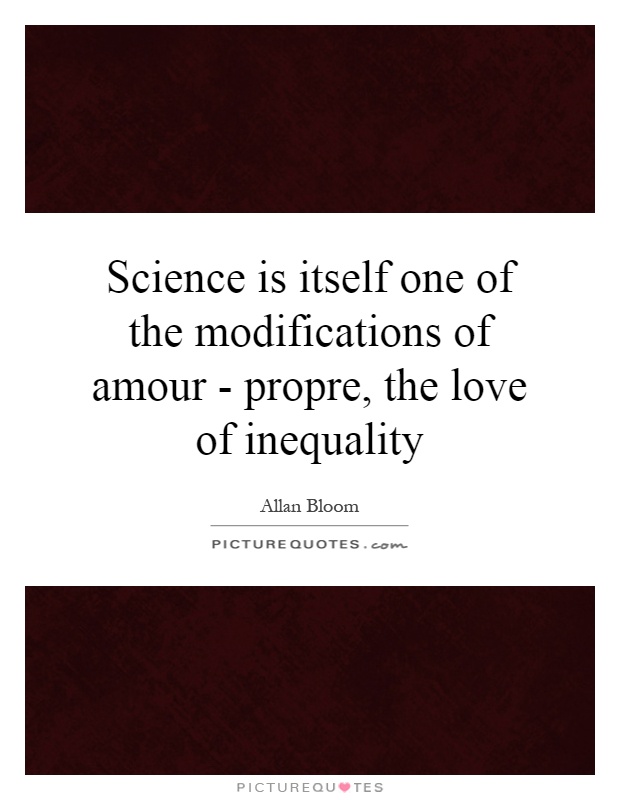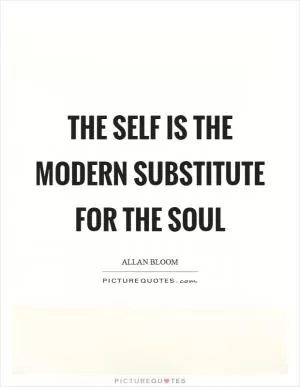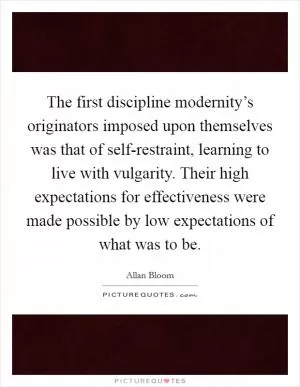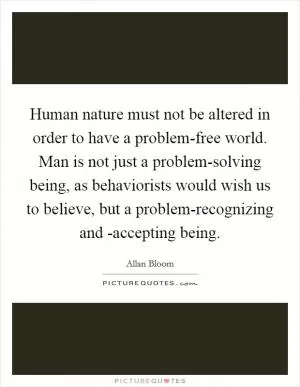Science is itself one of the modifications of amour - propre, the love of inequality

Science is itself one of the modifications of amour - propre, the love of inequality
In his book "The Closing of the American Mind," Allan Bloom argues that science is a manifestation of amour-propre, or the love of inequality. This concept, derived from Jean-Jacques Rousseau's philosophy, suggests that humans have a natural tendency to compare themselves to others and seek superiority over them. According to Bloom, this desire for superiority is reflected in the pursuit of scientific knowledge, where individuals strive to discover new truths and assert their intellectual dominance over others.Bloom's assertion that science is a form of amour-propre can be understood in several ways. Firstly, the competitive nature of scientific research often leads to a hierarchy of knowledge, where certain individuals or institutions are seen as more authoritative or prestigious than others. Scientists compete for funding, recognition, and publication in prestigious journals, all in an effort to establish their superiority in the field. This drive for recognition and status can be seen as a manifestation of amour-propre, as scientists seek to assert their intellectual superiority over their peers.
Furthermore, the pursuit of scientific knowledge can also be seen as a way for individuals to assert their superiority over nature itself. By uncovering the laws and principles that govern the natural world, scientists seek to demonstrate their mastery over the forces of nature and establish their dominance over the physical world. This desire to control and manipulate nature can be seen as a form of amour-propre, as individuals seek to assert their superiority over the natural world.
Overall, Bloom's assertion that science is a manifestation of amour-propre raises important questions about the motivations behind scientific research and the implications of this pursuit for society as a whole. By recognizing the role of amour-propre in the pursuit of scientific knowledge, we can gain a deeper understanding of the complex relationship between science, power, and inequality.












 Friendship Quotes
Friendship Quotes Love Quotes
Love Quotes Life Quotes
Life Quotes Funny Quotes
Funny Quotes Motivational Quotes
Motivational Quotes Inspirational Quotes
Inspirational Quotes